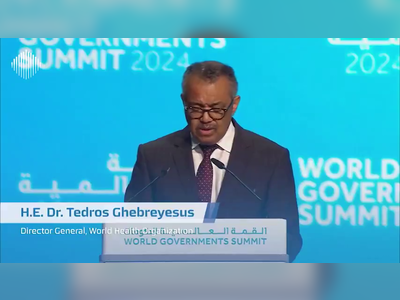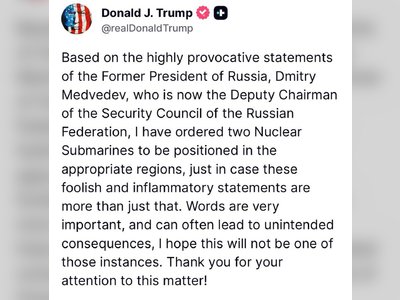
OPEC+ to Increase Oil Production by 411,000 Barrels per Day in July
Eight member countries of OPEC+ confirm production boost, maintaining recent supply policy amid market fluctuations.
LONDON/MOSCOW - OPEC+ members announced on Saturday that they would increase oil production by 411,000 barrels per day (bpd) in July, maintaining the same level as previous months in May and June, as part of their ongoing strategy to expand supply in the global market.
The eight countries involved in this decision—Algeria, Saudi Arabia, the United Arab Emirates, Iraq, Kazakhstan, Kuwait, Oman, and Russia—have been gradually raising their production since April, despite the downward pressure this additional supply has exerted on global oil prices.
Saudi Arabia and Russia, the two leading nations in OPEC+, aim to discourage other member states from exceeding their production quotas and to regain market share, particularly from American producers.
Harry Tchilinguirian from Onyx Capital Group commented that the recent decision reflects a priority on market share over pricing, stating, "If the price does not yield the expected revenues, they hope the volume will compensate for that."
The decision for the July increase was made during a virtual meeting where other options were also discussed.
Preliminary reports indicated that a larger increase might have been considered.
In an official statement following the conclusion of the meeting, OPEC+ cited "stable global economic prospects and healthy market fundamentals, as evidenced by low oil stock levels," as justifications for their decision.
With the planned volume increase for July, OPEC+ will have raised its overall production by 1.37 million bpd since the initial supply increase measures began in April, which accounts for nearly two-thirds of the total 2.2 million bpd that the group aims to reintroduce to the market.
Additionally, two previous production cuts implemented in recent years—totaling 2 million bpd across all member nations and 1.65 million bpd within the group of eight—are set to be gradually phased out by the end of 2026.
Oil prices fell in April to their lowest level in four years, dropping below $60 per barrel, following OPEC+'s announcement of a tripling of its production increase for May and trade tensions ignited by a tariff war initiated by the previous U.S. administration, which raised concerns about a potential recession and reduced global demand.
On Friday, crude oil closed at just under $63 per barrel.
The eight countries involved in this decision—Algeria, Saudi Arabia, the United Arab Emirates, Iraq, Kazakhstan, Kuwait, Oman, and Russia—have been gradually raising their production since April, despite the downward pressure this additional supply has exerted on global oil prices.
Saudi Arabia and Russia, the two leading nations in OPEC+, aim to discourage other member states from exceeding their production quotas and to regain market share, particularly from American producers.
Harry Tchilinguirian from Onyx Capital Group commented that the recent decision reflects a priority on market share over pricing, stating, "If the price does not yield the expected revenues, they hope the volume will compensate for that."
The decision for the July increase was made during a virtual meeting where other options were also discussed.
Preliminary reports indicated that a larger increase might have been considered.
In an official statement following the conclusion of the meeting, OPEC+ cited "stable global economic prospects and healthy market fundamentals, as evidenced by low oil stock levels," as justifications for their decision.
With the planned volume increase for July, OPEC+ will have raised its overall production by 1.37 million bpd since the initial supply increase measures began in April, which accounts for nearly two-thirds of the total 2.2 million bpd that the group aims to reintroduce to the market.
Additionally, two previous production cuts implemented in recent years—totaling 2 million bpd across all member nations and 1.65 million bpd within the group of eight—are set to be gradually phased out by the end of 2026.
Oil prices fell in April to their lowest level in four years, dropping below $60 per barrel, following OPEC+'s announcement of a tripling of its production increase for May and trade tensions ignited by a tariff war initiated by the previous U.S. administration, which raised concerns about a potential recession and reduced global demand.
On Friday, crude oil closed at just under $63 per barrel.











